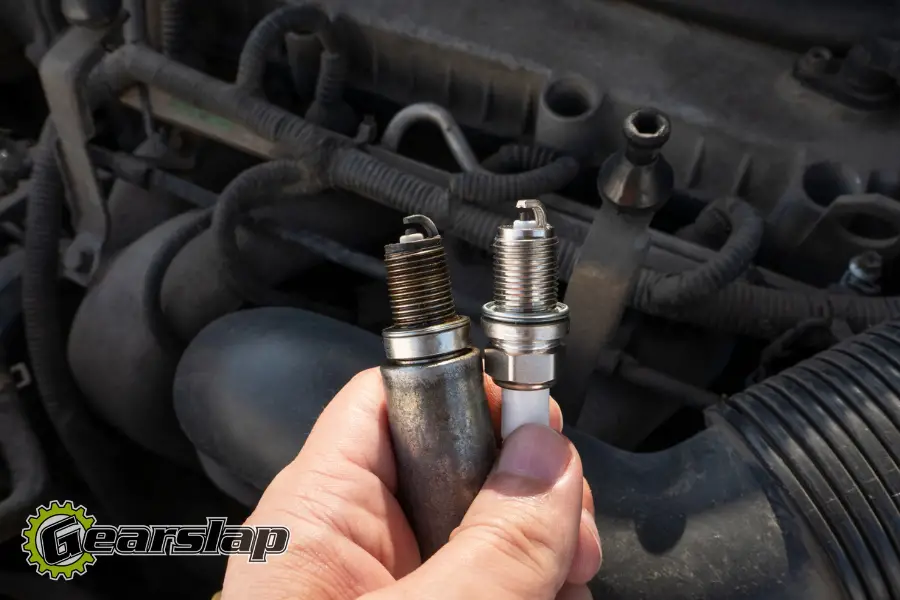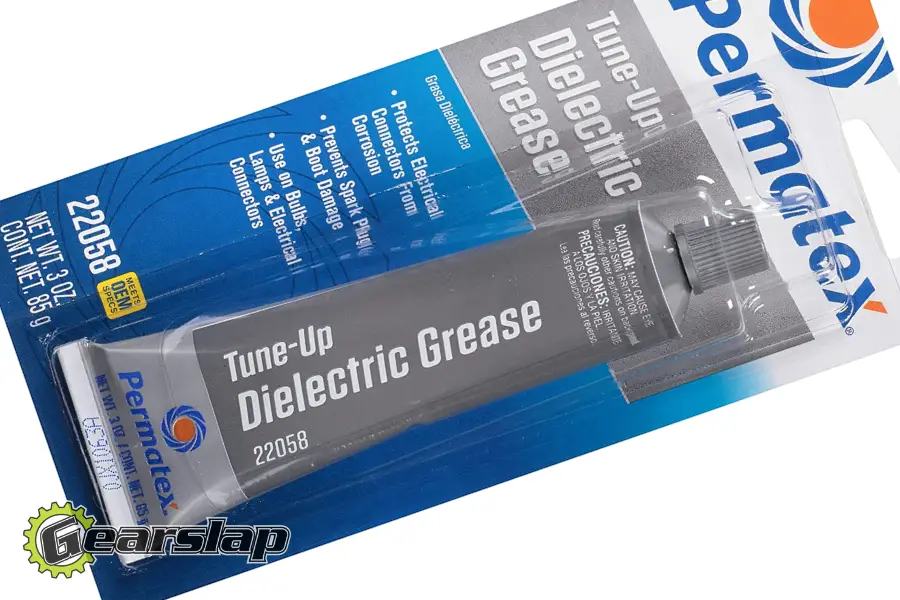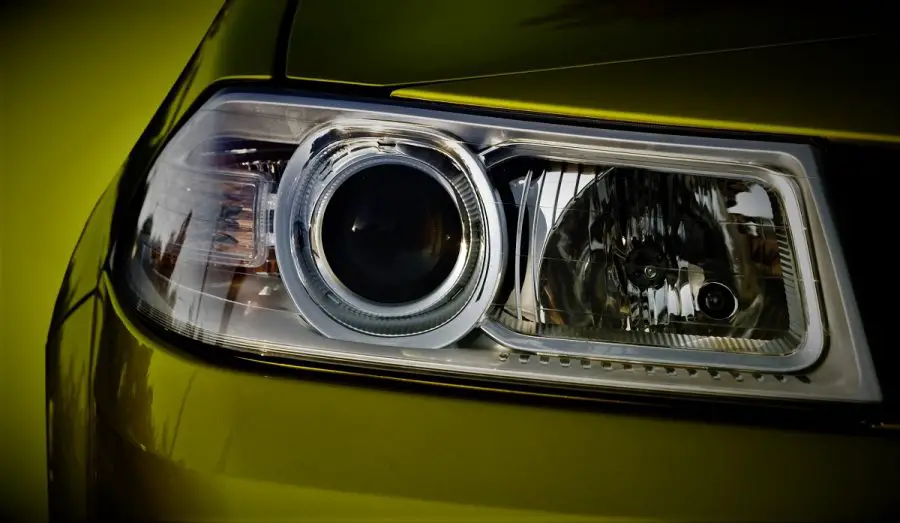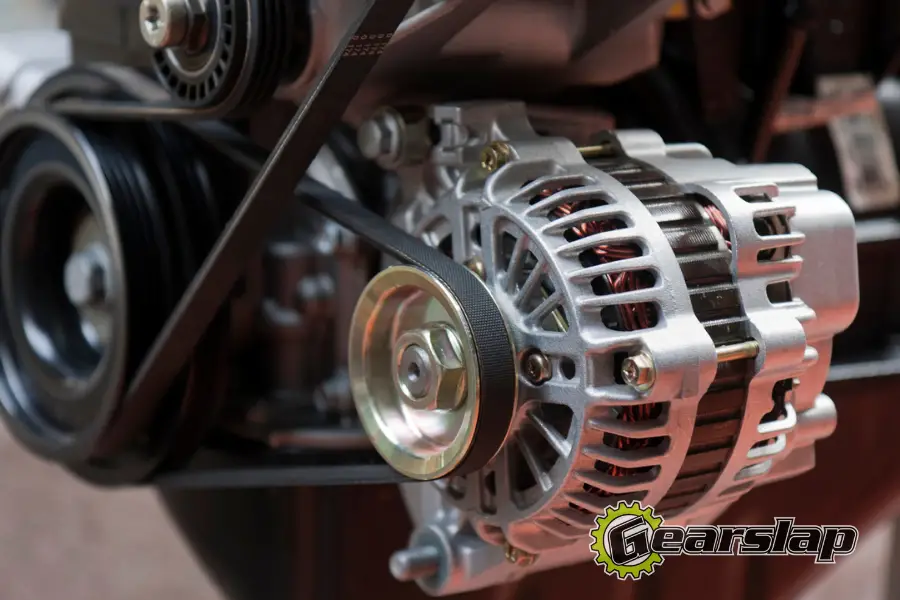You’ve found the place to answer all of your questions about dielectric grease! From ‘Can you use Dielectric Grease on spark plugs?’ to ‘Does Vaseline work as dielectric grease?’ we answer it all here!
Read on to learn where to use it (and where not to). Can it cause a misfire? Is it the same as bulb grease? Does it expire? And so much more.
This article tells you all you need to know about one of the most underground, niche well-kept secrets of garages across the country. Now, you can have access to this wonder oil and all of its benefits, too.
What is Dielectric Grease?
It is a grease made from silicone, often referred to as dielectric grease. It is waterproof and can be used interchangeably with wheel-bearing grease.
Unlike oil or coolant, dielectric grease is not one of those go-to necessities that everyone has in their kit. But it is popular in car garages and is typically applied on spark plugs, battery terminals, and lightbulbs.
In reality, dielectric grease works like car wax and is a protectant for your vehicle, and can potentially help extend and maintain the life of your car and its parts.
Can You Use Dielectric Grease on Spark Plugs?
The million-dollar question! Yes is the short answer, but there are conditions. You can use this grease to lubricate the spark plug wires. But first, you need to ensure that the spark plug hood is cooled. Once it is, you can open the spark plug boot and clean it with care.
When you’ve finished that step, you can apply the dielectric grease onto cardboard, then onto the boot’s inner wall.
Can Too Much Dielectric Grease Cause a Misfire?
Yes, it can! Improper use can lead to a misfire in your vehicle.
Dielectric Grease is non-conductive, meaning it does not conduct electricity. It can prevent arcing and corrosion by keeping elements out of the spark plug boot and making transition and movement easier.
When you add the dielectric grease to the spark plug boot, you need to use it sparingly, as using too much can cause a misfire. Inside of the spark plug wire, you need to prevent adding too much into the terminal when adding it, as the grease can prevent the spark from traveling properly through the wire.

What Can I Use to Grease Spark Plugs?
You can use petroleum jelly to grease spark plugs (like Vaseline) or Dielectric Grease to lubricate the spark plugs.
Spark plugs now have anti-seizure nickel or zinc-chromate shell plating, so do not use lubricant or anti-seize on NGK spark plugs.
Does Vaseline Work as Dielectric Grease?
Yes! Vaseline does work as dielectric grease. Although it is more expensive when compared to Vaseline, users consider it better when it comes to preserving connections. Vaseline, or other non-branded petroleum jellies, has a weaker bond and will not have as much staying power as dielectric grease when exposed to extreme temperatures.
Should You Grease Spark Plug Threads?
There should be no need to grease your spark plug threads, as the torque settings for spark plugs are typically dry threads. If you reduce the impact of friction by greasing the threads, this will lead to more pressure on the plug to apply pre-load. Preload is the tension in the plug that gives friction to the force that stops them from working loose.
In a nutshell, no. You should not grease your spark plug threads!
Where Do You Apply Dielectric Grease?
Where do you apply dielectric grease? This lubricant has so many uses! You can use it on spark plugs or use it to grease the rubber parts of electrical connectors. You can also use it to prevent and protect electrical connections on your boat from corrosion.
You can use dielectric grease on the gaskets of multi-pin connectors on boats and recreational vehicles. It can also be applied to the metal parts of nearly any electrical connection that might be exposed to corrosion. The grease acts as a sealant, protecting the connection from contamination and corrosion.
But! This comes with a warning! You should be careful while doing this. If some grease gets left between the mating surfaces, it will cut off the electricity flow through the connection. So, if you’re not confident, work closely with your local mechanic to help you.
Should Dielectric Grease Be Put On Ignition Coils?
You can put Dielectric grease on ignition coils, which is the preferred method for automotive ignition applications, as ignition systems use rubber boots to ensure that spark plugs and wires are well away from moisture.
Is Bulb Grease the Same as Dielectric Grease?
A frequently asked question is whether bulb grease is the same as dielectric grease? Bulb grease is also used for protective coating and can be applied to your car’s electrical connections, rear lights, and other electrical components. However, it is not recommended to use Dielectric grease in all of these applications.
Some bulb greases are silicone-based, and some are not. Dielectric grease will not harden, whereas some bulb grease can over time. So, when in doubt. Use Dielectric Grease!

Where Should You Not Use Dielectric Grease?
A commonly asked question is where you should not use dielectric grease/ As it has a low viscosity, many experts recommend not using dielectric grease in high-temperature components (that exceed 500 degrees Fahrenheit).
It is crucial not to use dielectric grease on silicon-based rubbers or plastics because it is made with silicone. Over time, doing this will denature them or break them down. The grease should never be applied directly to pins and sockets of an electrical connection because it won’t conduct electricity.
Does Dielectric Grease Expire?
A dielectric grease product is one of those products you will buy and use for many years, and it doesn’t go off! Some customers have reported that they have returned to use it 10 years later, and it still works just fine!
This product smells strange, but that doesn’t indicate that it has expired. If your dielectric grease is still thick and pasty, you can use it with full confidence!
Does Dielectric Grease Dry Out?
It shouldn’t! Dielectric Grease should not dry out. Users report having kept a tube of it for many years, as the silicone content keeps it from drying out. Store it in a cool place and keep the lid on tight, and your dielectric grease should last you for years!
Can you use Dielectric Grease on Light Bulbs?
Yes, you can use dielectric grease on light bulbs! If you put a bit of the grease on the light bulb’s threads before you screw it in (be safe and make sure all electricity is turned off!), which will prevent the bulb from getting stuck, which can happen over time. So you will save yourself from broken bulbs and any danger!





